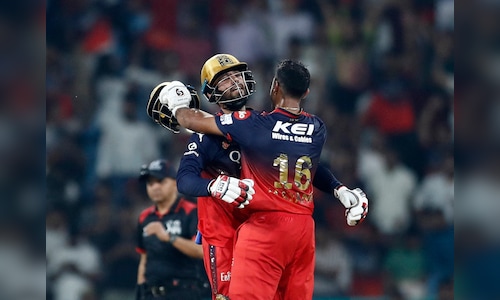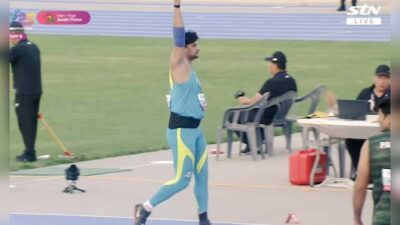However, the introduction of Mo Bobat, Andy Flower, and Dinesh Karthik to the coaching team altered the approach, significantly influencing RCB’s strategy during the 2024 auction.
With top players like Rishabh Pant, KL Rahul, and Shreyas Iyer available, RCB would have typically broken the bank to secure at least two of them based on historical trends.
Instead, they prioritized value acquisitions such as Josh Hazlewood, Bhuvneshwar Kumar, Krunal Pandya, Phil Salt, Suyash Sharma, Romario Shepherd, and Tim David.
Each of these players has played vital roles in RCB’s victories this season, demonstrating their value—both at home and away.
Clearly, RCB aimed to select players for specific roles within the team, rather than merely opting for those with established reputations.
“I believe we achieved most of what we intended in terms of player selection. More importantly, with the overall structure of the team and the vision that Andy and I spent considerable time discussing, we really hit the mark. You can see that taking shape on the field,” stated Bobat, RCB’s director, in a statement.
The signing of Salt serves as a strong testament to those sentiments.
RCB was prepared to release Will Jacks, who had impressed with a 41-ball century against the Gujarat Titans last year, in favor of Salt, whom the coaching staff believed could consistently generate significant overs early on.
He plays a high-risk style and has dismantled top bowlers like Mitchell Starc (Delhi Capitals) and Pat Cummins (Sunrisers Hyderabad), disrupting their confidence.
Moreover, Salt has delivered those crucial cameos that have been decisive in match outcomes.
When RCB required a quick start while chasing a daunting 228 against Lucknow Super Giants—essential for a top-two finish—Salt contributed a quickfire 30 off 19 balls, initiating a partnership with Kohli that yielded 61 runs in just 5.4 overs, allowing RCB to maintain early momentum.
Karthik, a mentor instrumental in shaping RCB’s auction strategy, discussed the reasoning behind selecting players like Salt.
“I believe we excelled in assembling a very balanced squad, having anticipated the types of players we needed for specific roles. During the selection process, we assigned players to roles and assessed their fit.
“We were confident about the batting order we desired. During our auction preparations, we established a few eleven-player combinations, keeping particular names in mind,” Karthik explained.
This meticulous planning extended to selecting a replacement for an injured player. RCB management did not hesitate to bring in Mayank Agarwal when the in-form but injured Devdutt Padikkal was ruled out for this IPL season. The management valued Agarwal’s experience and capacity to fulfill Padikkal’s role, letting the bigger hitters focus on their strengths.
Agarwal also had compelling statistics, accumulating 179 runs over seven matches at a strike rate of 153 in this season’s Syed Mushtaq Ali Trophy.
“The distinctions between this RCB squad and previous iterations are the accumulated experience of the twelve players, and the batting depth and strength,” said Karthik.
Agarwal did not falter either, scoring an unbeaten 41 off 23 balls at a strike rate of 178 while giving robust support to Jitesh Sharma (85, 33b, SR: 257) against LSG.
Their unbroken 107-run partnership for the fifth wicket propelled RCB to a noteworthy six-wicket victory.
Experience counts
These players have participated in various T20 competitions, and their experience means they require minimal guidance in high-pressure situations.
Karthik affirmed this. “We had many leaders—not just one or two marquee names—but numerous leaders among the players we selected from the auction,” he remarked.
Nonetheless, the majority of these cricketers were newcomers to the RCB environment, needing to feel secure in a fresh setting.
This was crucial because RCB entrusted the captaincy to Rajat Patidar, a talented player who may not carry the same weight as some others in the squad. The think tank executed this integration perfectly, allowing Patidar to emerge as a respected and accepted leader.
“For Andy and me, creating an environment where players feel safe, supported, accountable for their decisions, and able to showcase their strengths—this is essential,” Bobat noted.
Now, they stand just one victory away from claiming their first IPL title, and the tagline ‘Ee Sala Cup Namde’ (This time the Cup is ours) feels more attainable than ever before.



